|
From the time you find out your expecting, through bouts of nausea and doctor's appointments, a lot of time and energy goes into the process of giving birth to your first baby. I know it did for me! That said, birthing a baby is a time-limited experience, often involving much support and oversight. What follows, the act of caring for a baby and raising a child, is an entirely different scenario. It is joyous and awe-inspiring, but also intense, overwhelming and sometimes chaotic. If you are at the start of your parenting journey, here are the five things I wish I knew when I was a first-timer: 1. There's No One Right Way. If you research any topic from feeding to sleep to vaccines to the recommended thread count of organic baby sheets, you will find dozens of opinions. Each of those opinions will claim to be the right one, the best one, the most tried-and-true of the bunch. I can't stress this enough, they're all wrong because there is no one single right or best way for every single baby, parent, and family. I wish I had this mantra written on the back of my hand while I tried to sort through advice and opinions in my sleep-deprived, new-mommy state of being. Once you accept the fact that raising babies and children is not a one-size-fits-all situation, you'll turn the volume down on stress and prevent a ton of unnecessary mommy-guilt. 2. Babies Are Resilient. One of your child's distant ancestors survived in a cave somewhere without a single modern "necessity." It's true. Babies may appear to be tiny, fragile, thin-skinned beings, and while they are dependent on you for survival, they are anything but helpless. Infants are equipped with loud voices that will alert you to their discomfort. They have amazing reflexes designed to keep them alive in all sorts of situations you will work tirelessly to avoid. Seriously, the mammalian diving reflex ensures that babies under six months of age hold their breath if they slip under water for a second and adorable infant bodies are basically engineered to fall perfectly (unlike us adults who apparently do it all wrong by stiffening up and trying to fight gravity). You'll still take every precaution to keep your baby from harms way, but knowing that your infant is equipped with a slew of built-in safety features will hopefully help you sleep better at night. 3. Accept Help. It truly takes a village to raise a child and in our current society, opportunities for hands-on help and support are often limited. So, when a genuine offer of help comes along, don't shy away from it. In fact, I think it's a great idea to be as specific as possible. Some new moms are desperate for help with laundry while others may find it priceless to have an extra set of hands to hold a fussy baby allowing for time to shower or nap. Be honest, and know that everyone in your family unit wins when you have more assistance. 4. The Internet Will Make You Crazy. Especially if you log on while worried or feeling guilty about some parenting issue. Researching topics like "normal infant body temperature," "typical baby bowl movements," or "when should my child be babbling" can have you falling down the rabbit hole of parental paranoia in no time. Even pursuing topics that may seem mundane can lead to undue stress. For example, you may be looking for some cute ideas for at-home baby pictures only to close your laptop 30-minutes later feeling like a failure because of the staged and unrealistic photo spreads littering Pintrest. Internet research is great to find the phone number of a fantastic dry cleaner who can get baby vomit out of your favorite decorative throw blanket, just keep in mind that you may get more than you bargain for upon searching baby-related topics. 5. Trust Your Instincts. This is the most important lesson of parenthood and it will continue to serve you and your child well far into the future. You have instincts. Little "knowings" or hunches that clue you in to what your baby wants or needs. Parents who have raised more than one child can speak to the fact that no book or expert teaches you to hold or comfort your child. You figure it out through a combination of instinct and trial-and-error. Sometimes instincts allow you to discern a "I'm having a tough minute right now" cry from a "this is a serious emergency situation and I need attention right now" cry. Trusting that you will know when something is off course allows you to truly appreciate and enjoy whatever moments of peace and calm come your way. JOIN Dr. Stephanie on Facebook LIVE for weekly Parenting Q&A sessions.
CLICK HERE, LIKE the page... Get parenting tips that work in the real world!
1 Comment
So, normally when you read a parenting blog about tantrums and meltdowns, you expect to hear examples of kids losing their minds and regressing to an infantile, irrational state of existence. Then, you expect some tangible tips on how to deal with the emotional hurricane and hopefully prevent it from happening again in the future. Well, let’s try something different here. Let’s talk about the often overlooked, but very real parental tantrum. How do I know parental tantrums are real? Because I’ve had them. Why don’t we hear about parental tantrums? Because it’s uncomfortable to talk or think about having lost your mind and acted in a way you’re not proud of toward or around your kids. It’s safe to talk about kids having tantrums because, hey, they’re kids! When it comes to owning your words and actions during times of extreme stress and intense emotion, things get complicated. The urge to ignore the existence of your parental tantrums may be strong, but denying the fact that you may lose it from time to time leads to more frustrated outbursts. Once the cycle gains momentum, it can be hard to turn around. So, just like you expected, here are five ways to deal with your very own parental tantrums and try to prevent them in the future. Be Aware Take two minutes now to think about the last few times you’ve lost your cool with or around your kids. Label those instances as parental tantrums so you have a word to organize your experiences, and so you are more likely to notice them when they happen again in the future. This isn’t about guilt or shame; it’s about turning the lights on in the dark spaces you’d rather not see. This awareness allows you to gain some control over your thoughts, emotions, and experiences.
Be aware of and label your past parental tantrums.
Know Your Triggers
We all have triggers. Little things that push your buttons and often cause reactions that are much larger than the situation calls for. Some of mine are refrigerator doors left open, new or unworn clothes winding up in the laundry basket, and unused lunch items that never got unpacked. I know it makes no rational sense that seeing a day-old yogurt in a lunchbox can send me into an emotional tailspin, especially when much weightier situations don’t register with as much intensity. But being honest about your triggers without judging them will help you see parental tantrums coming and give you a fighting chance of keeping your cool (or at least containing your eruption).
Get to know your triggers so they don’t sneak up on you.
Be Kind
Be kind to yourself, that is. This notion gets its very own bullet point because it’s easy to be tough on yourself as a parent, which leads to more negativity and ultimately more parental tantrums. You’re human. You have needs, and feelings, and expectations. Parenting it hard, and it’s just a part of your life, not your entire existence. You have other responsibilities and feeling stressed or overwhelmed does not signify failure or inadequacy, it reflects the fact that you are a normal person who has limits and does not possess a magic wand or own a superhero cape. Welcome to the club!
Be kind and forgiving to yourself because you are a parent, but you’re also human.
Float
Here’s where it gets hard. Once you realize that you are in the midst of a parental tantrum, it’s very hard to but the brakes on and stop in your tracks. Lots of neurological and physiological processes have started and it’s not easy to turn them around just by realizing what’s happening. You’ve seen your kids in this state, and you know all bets are off. So, until your body catches up to the rational, thinking part of your brain, your best bet is to wait, or float. Close your eyes if you can. Imagine you’re on your back floating. There may be choppy waters around you or even a tsunami wave approaching, but your only job is to keep your nose above the water line so you can breathe and keep your muscles relaxed so you stay afloat. Note, your kids may think you’re crazy because in the midst of you losing your cool, you will stop and momentarily detach from the situation at hand. That’s fine. It’s better to say and do nothing than to pile on more angry actions that you’ll ultimately wish you could take back.
Just float.
Be Accountable
This step is by far the hardest to master as a parent because it’s not about apologizing. It’s about taking ownership of what you said or did while you were emotionally out-of-control and communicating to your child that you will make different choices in the future. I’ll give you the words, which you can edit to fit your situation: “It was not okay that I screamed at you/slammed things/threatened to cancel your birthday. I will make a better choice next time I’m upset.” See, there’s no part in here where you say but. So, there’s no, “I’m sorry I yelled, BUT you weren’t listening.” Or, “I’m sorry I said those things, BUT you were being disrespectful.” Being accountable is just about you. What you said. What you did. What you will try to do differently in the future. This is probably the most powerful tip when it comes to turning the volume down on parental tantrums because you like to be right. We all do. And when you start saying, “I’ll make a better choice next time I’m upset,” I believe that you will.
Take ownership of your words and actions so you can make wiser choices in the future.
JOIN Dr. Stephanie on Facebook LIVE for weekly Parenting Q&A sessions.
CLICK HERE, LIKE the page... Get parenting tips that work in the real world! Parenthood is many things. It's rewarding, exhausting, inspiring, frustrating, and full of surprises. Being a parent also means that you have to constantly manage the balancing act of meeting your own needs while simultaneously caring for your kids. It's hard to do, and it's easy to fall into the habit of waking up each day just to check off the to-do list, crawl into bed, and get up to hit the grindstone again. I know I'm oversimplifying. Along your parenting journey there are amazing, priceless moments, but life as a parent can be monotonous and underwhelming. Are there things you look forward to? Sure. Would it be fantastic to have something all your own that you to look forward to and enjoy every day? Absolutely! I found myself in this boat recently with days seeming a bit lackluster, and I came up with a plan to turn things around. I set out to complete a 21-Day Challenge. It's been awesome, so I wanted to share it with you. Here's the deal: Choose one thing you enjoy to do and that you know will make you feel better, not worse. Make sure the focus of your challenge hits both of these criteria because, let's be honest, even if you know running five miles a day will make you feel better, it's not a great way to add inspiration to your daily life if you hate running. Likewise, if you love to buy expensive shoes but know that spending more money than you can afford will make you feel badly, ditch that idea and go back to the drawing board. Here are some ideas:
Commit to doing that one thing each day for 21 days straight. Why 21 days? I wish it were a magical number, but it's not. It's long enough to give yourself a real shot at experiencing your chosen activity, but not so long that you'll be tempted to throw in the towel and give up. Current research suggests that it takes an average of 66 days to really shift habits, but I'm easily bored and 66 days seems like an incredibly long time so three weeks it is. My challenge has been to take a walk outside every day. I don't necessarily have time to add this to my routine, so I swap out my morning workout or wake up early to fit it in. Without this challenge, I would have easily opted out on many days and found one, if not many, ways to spend my time. It's not that I would waste my time, but those moments would be absorbed by my daily routine and fly by without feeling significant or particularly special. The fact that I do something for myself with that time is meaningful. Plus, following through on the commitment to myself feels just as good as the walk does. See, the challenge is less about what you actually do every day for three weeks, and more about the fact that you practice meeting your needs without judgement or guilt. What happens when the 21-days is up? It's your call. You can call it a wrap, continue with your challenge, or start a new one. Personally, I'm hooked on the idea of committing to something I enjoy every day so I imagine that I'll move on to something new once my 21-days is up. What's the net result? You feel better. When you feel better, your kids notice that you're more patient, respectful, and consistent. Win-win! JOIN Dr. Stephanie on Facebook LIVE for weekly Parenting Q&A sessions.
CLICK HERE, LIKE the page... Get parenting tips that work in the real world! |
Stephanie O'Leary, Psy.D.
Sharing practical strategies that help parents rediscover joy in their children (even when someone's crying, the phone is ringing, and it smells like the house may be burning down) Archives
October 2017
Categories |
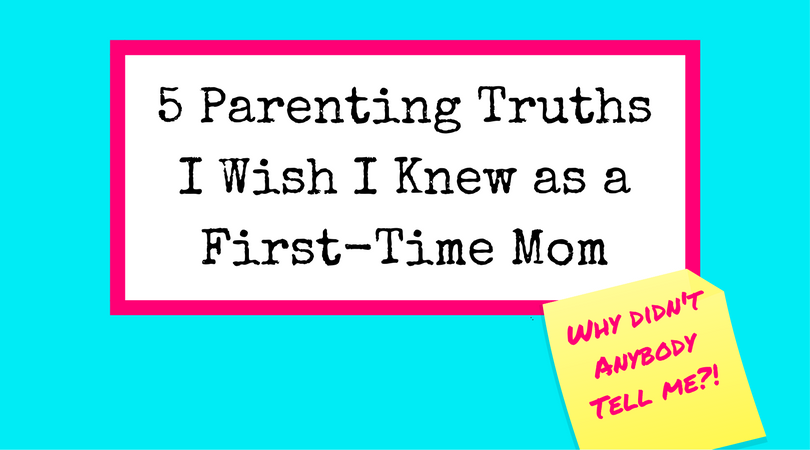
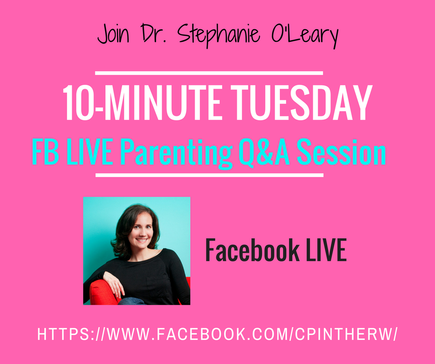
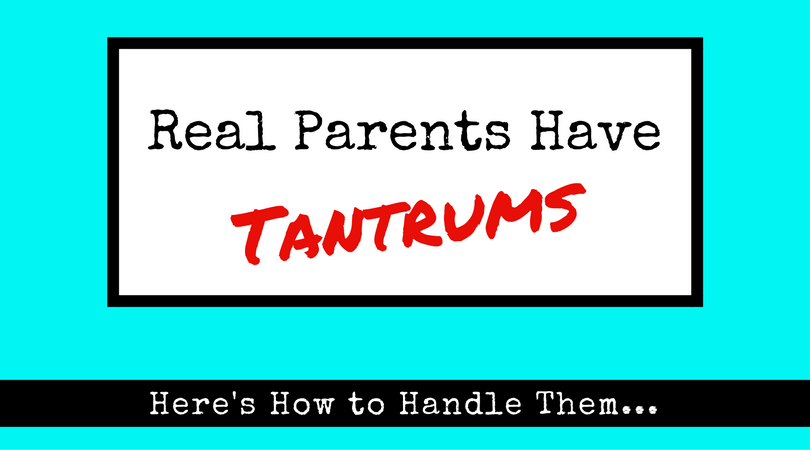
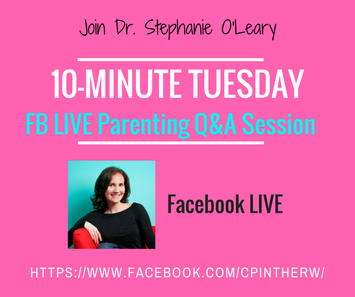
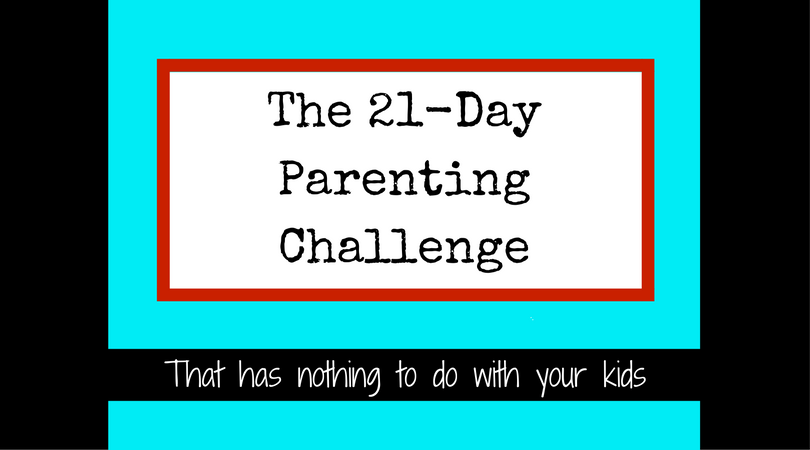
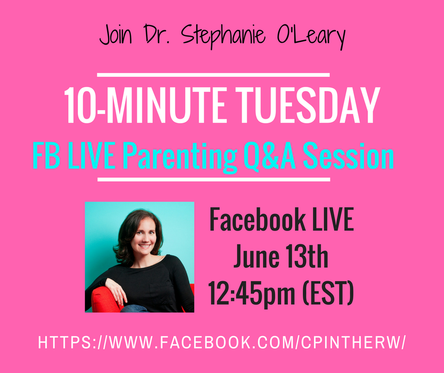
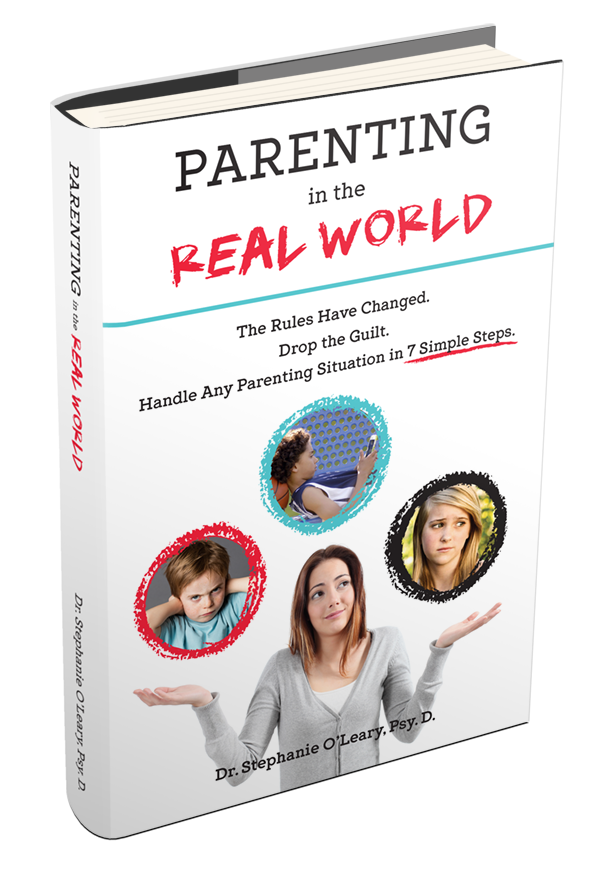

 RSS Feed
RSS Feed